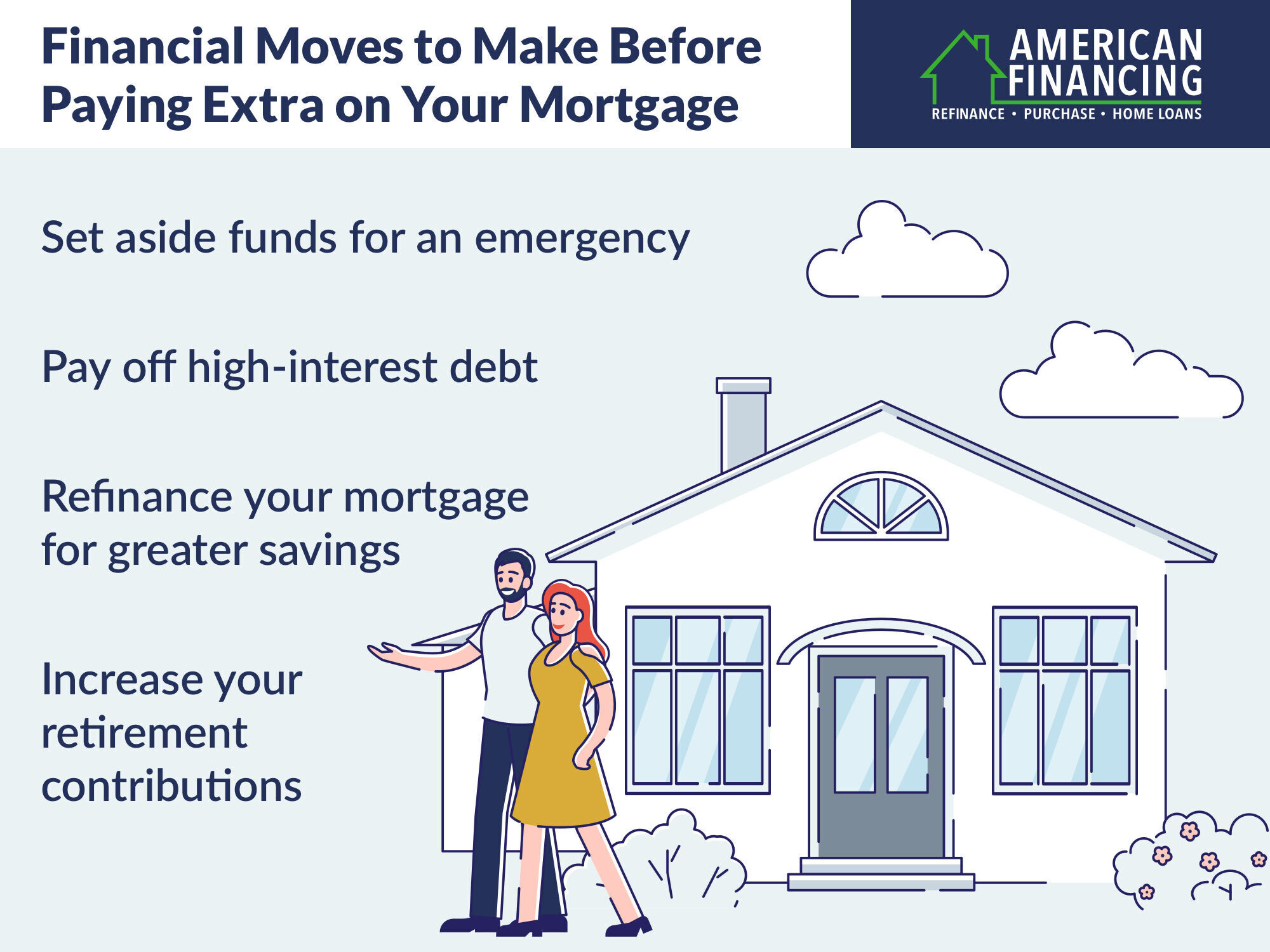Paying off your mortgage early can seem like an impossible feat. But what if you could shave years off your loan term and save thousands in interest just by paying a little extra each month? Let’s explore what happens when you pay an extra $1,000 toward your mortgage principal every month.
How Making Extra Payments Impacts Your Loan
Part of your monthly mortgage payment goes to interest and part goes to paying down the principal, which is the amount you borrowed in the first place. If you pay an extra $1,000 every month, that money goes right toward lowering your principal balance.
The amount of interest that builds up each month goes down as a result. Paying more now will save you money in the long run because you will pay less interest over the life of the loan since interest is based on the current principal balance.
Crunching the Numbers
To see the true impact, let’s run through an example:
- You have a $300,000 30-year fixed-rate mortgage at 4% interest
- Your monthly principal and interest payment is $1,432
- By paying an extra $1,000 each month, your new monthly payment is $2,432
- Instead of paying the loan off in 30 years, the extra $1,000 a month will pay it off in approximately 15 years
- You will save $96,559 in interest and pay off the loan 114 months (or 9.5 years) faster
As you can see, adding that extra $1,000 a month makes a huge difference! You shave nearly a decade off your loan term and pocket close to $100k in interest savings.
Other Ways to Pay Extra
While adding $1,000 to your monthly payment is effective, you may prefer other methods:
- Bi-weekly payments – Splitting your monthly payment in half and paying every two weeks adds about one extra payment per year, accelerating payoff.
- Lump sum payments – Use your tax refund, work bonus or other windfall to make one-time extra payments toward principal.
- Recasting the mortgage – Recasting adjusts your principal balance to account for extra payments without refinancing. This lowers your monthly payment while maintaining your loan’s original term.
Weighing the Pros and Cons
Before deciding if paying extra is right for you, consider these key pros and cons:
Pros
- Pay off your loan years faster
- Save thousands in interest
- Build equity and own your home sooner
- Eliminate mortgage payment to free up cash flow
- Increase savings for retirement or other goals
Cons
- Less liquidity if cash is tied up in your home
- Potential prepayment penalties (check your loan documents)
- Need budget discipline to consistently pay extra each month
- Lower credit score temporarily when account is paid off
Is Paying Extra Right for You?
As with any major money decision, your personal financial situation should steer your course.
Paying extra can be a smart move if:
- You won’t need the extra cash for other goals in the near term
- You have a stable income that allows for larger monthly payments
- Your career is on track and you don’t foresee relocating soon
- You understand any prepayment penalties per your loan documents
- You have an emergency fund and other key financial bases covered
But it may not be the best choice if:
- You have other high-interest debt like credit cards to pay off first
- You need to build up emergency savings or cover essential expenses
- Your income is volatile or unstable
- You plan to move within the next 5-7 years
In the end, you should do the math, think about the pros and cons, and talk to a financial advisor to find out if paying more on your mortgage will help you reach your financial goals. You could save a lot of money, but make sure it fits with your overall budget.
Explore Your Options
If paying off your mortgage early appeals to you, use our extra payment calculator to run the numbers with your actual loan details.
You can also talk to one of our home lending advisors about all of your money matters. Based on your current mortgage, we can figure out how much you’ll save and talk about the best way to set up extra payments.
Whether it’s an extra $1,000 a month or well-timed lump sum payments, we’re here to help create a payoff plan tailored to your unique needs and long-term financial goals. Paying off your home faster could allow you to begin the next chapter of your life mortgage-free.

Pay Off Your Home Faster
Our free EveryDollar app helps you plan, track and budget smarter—so you can pay off your mortgage faster.

When you find your dream home, you dont have to wonder if you can actually afford it. Churchill can help you get ahead.
Learn More About Buying a House
Want to get rid of your house payment for good by paying off your home loan? Here are five tips for how to pay off your mortgage early.

Want to buy a home in 2025? You’ve come to the right place! We’ll walk you through how to buy a house in 10 steps.

A bad mortgage could wreck your finances!

What Paying an Extra $1000/Month Does To Your Mortgage
FAQ
What happens if I pay $1000 extra a month on my mortgage?
How to pay a 30-year mortgage in 15 years?
To pay off a 30-year mortgage in 15 years, you can either refinance to a 15-year mortgage or make extra payments towards the principal on your existing 30-year mortgage. Refinancing to a 15-year mortgage will likely result in higher monthly payments but significantly less interest paid overall.
How many years does one extra payment take off a mortgage?
Making one extra mortgage payment per year on a 30-year mortgage can shorten the loan term by about 4 to 5 years.
What happens if I make 2 extra mortgage payments a year on a 30-year mortgage?
For a 30-year mortgage, making two extra payments each year can cut the loan term and the total amount of interest paid over the life of the loan by a large amount.
